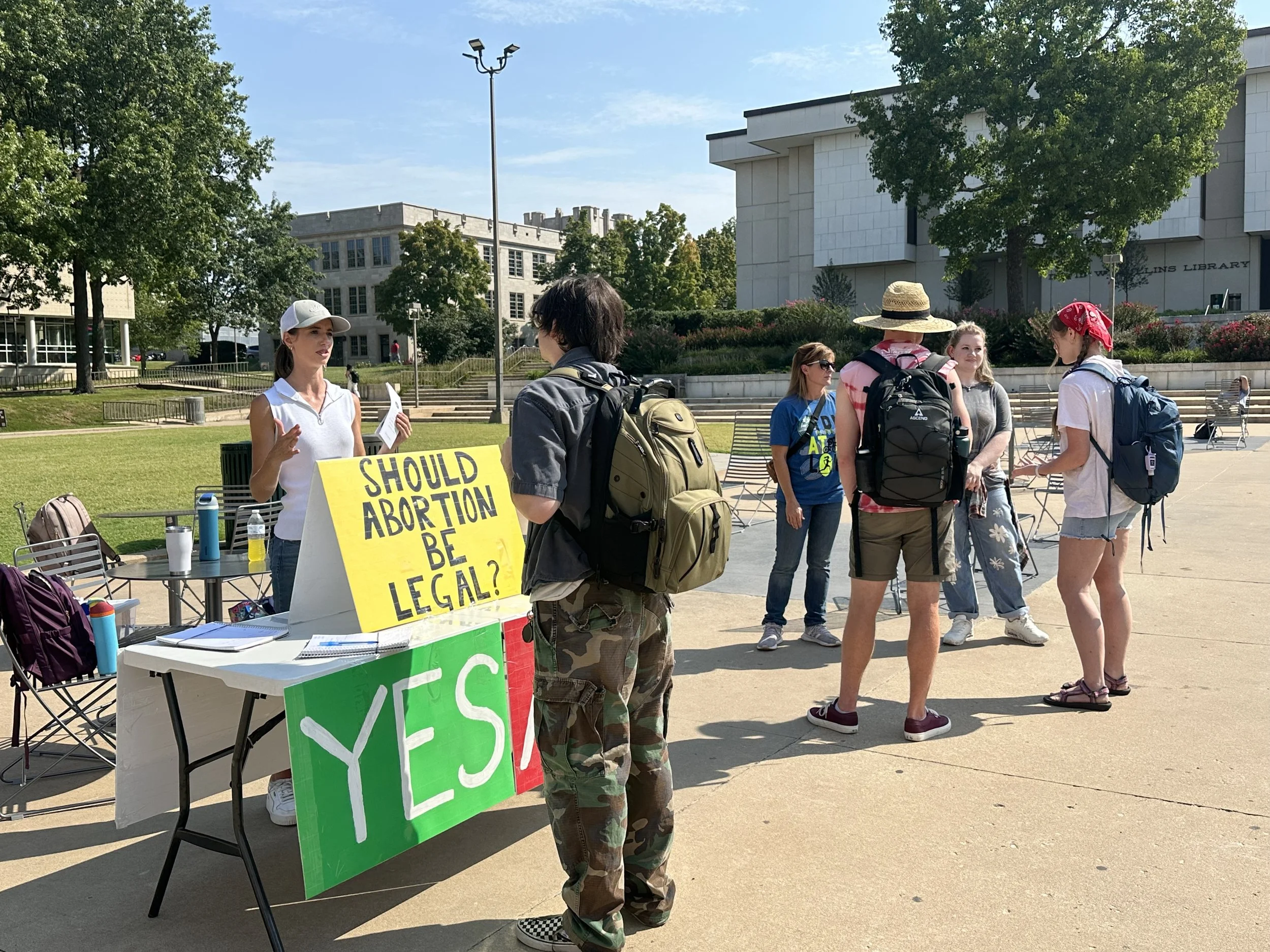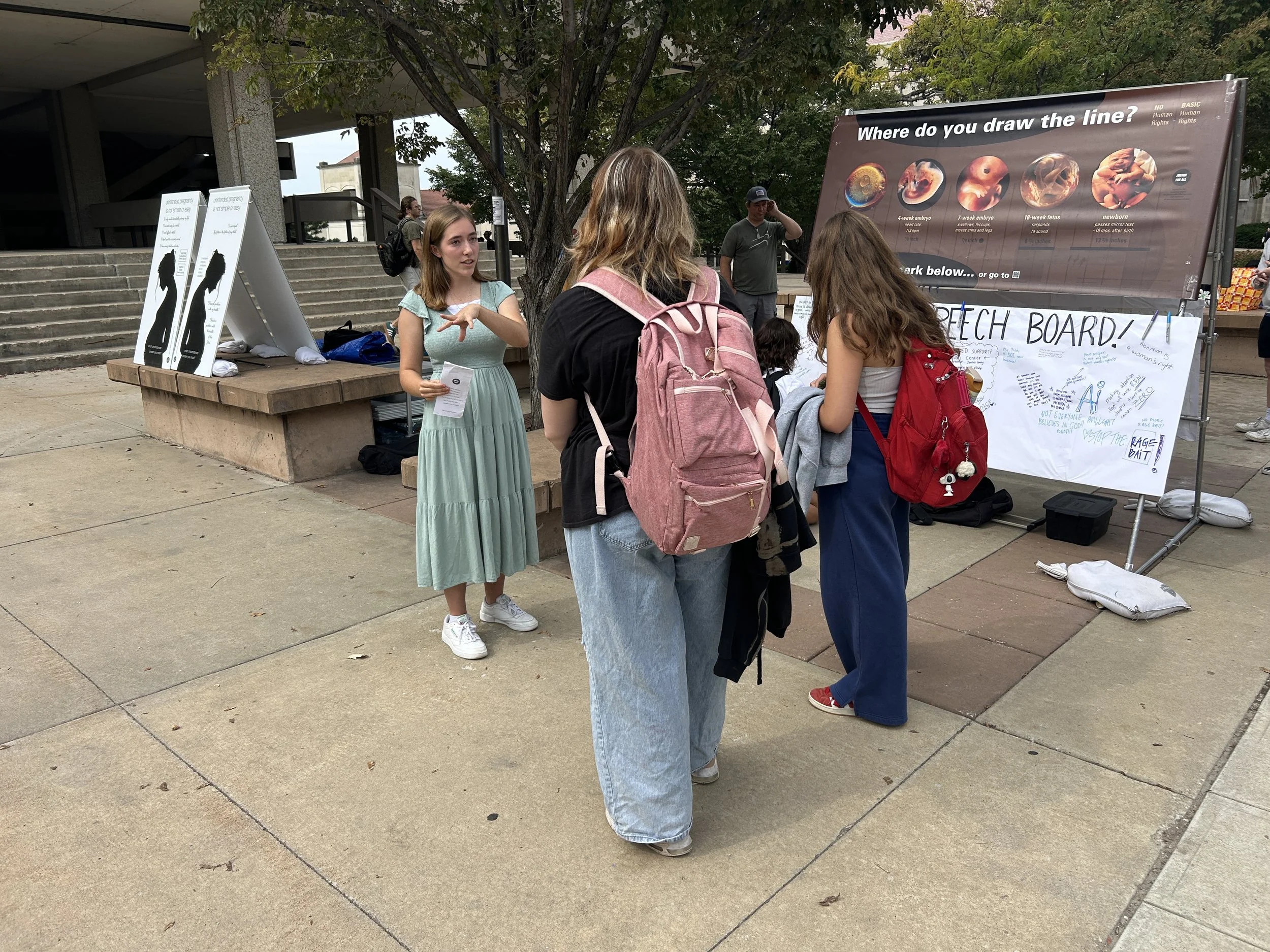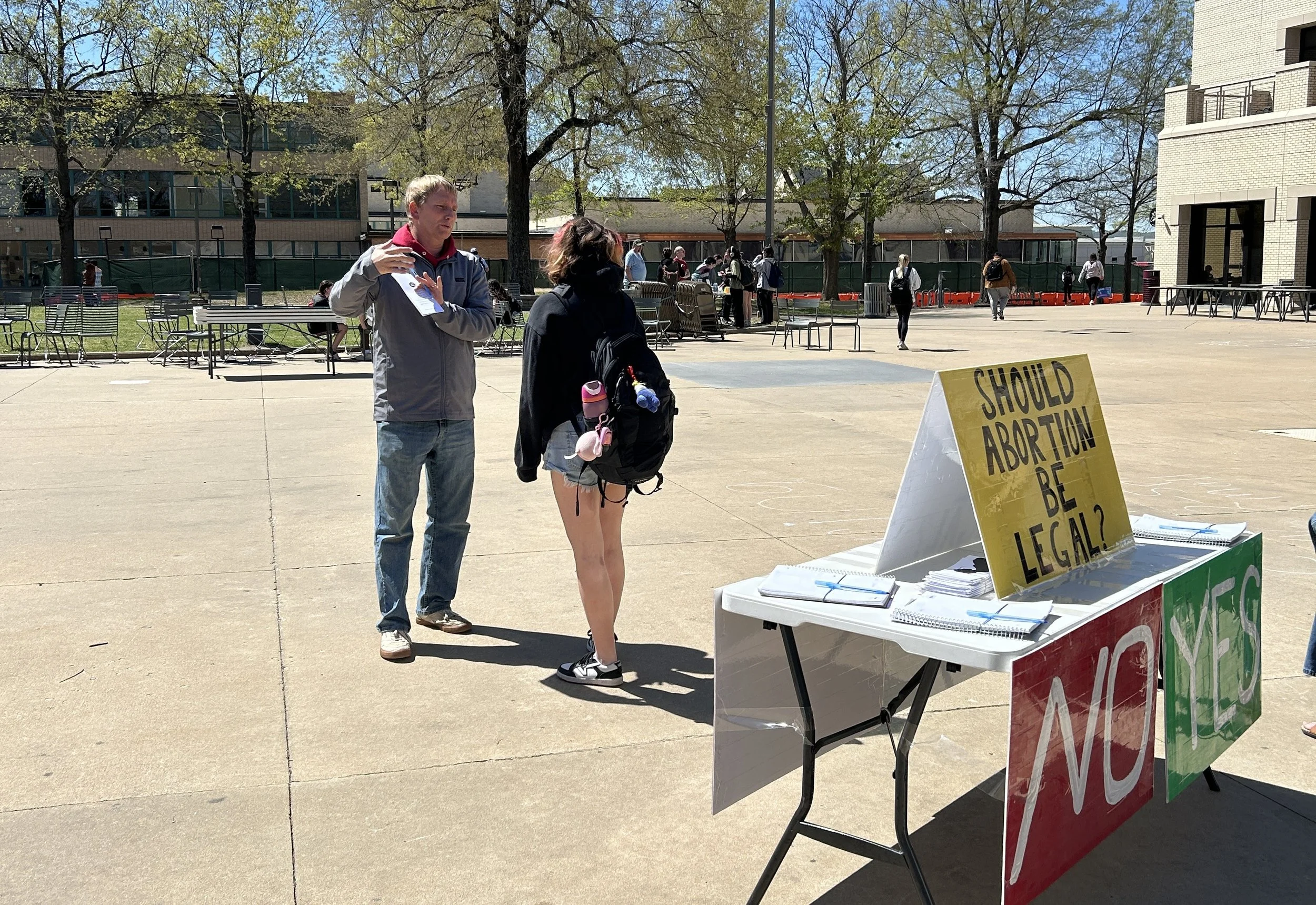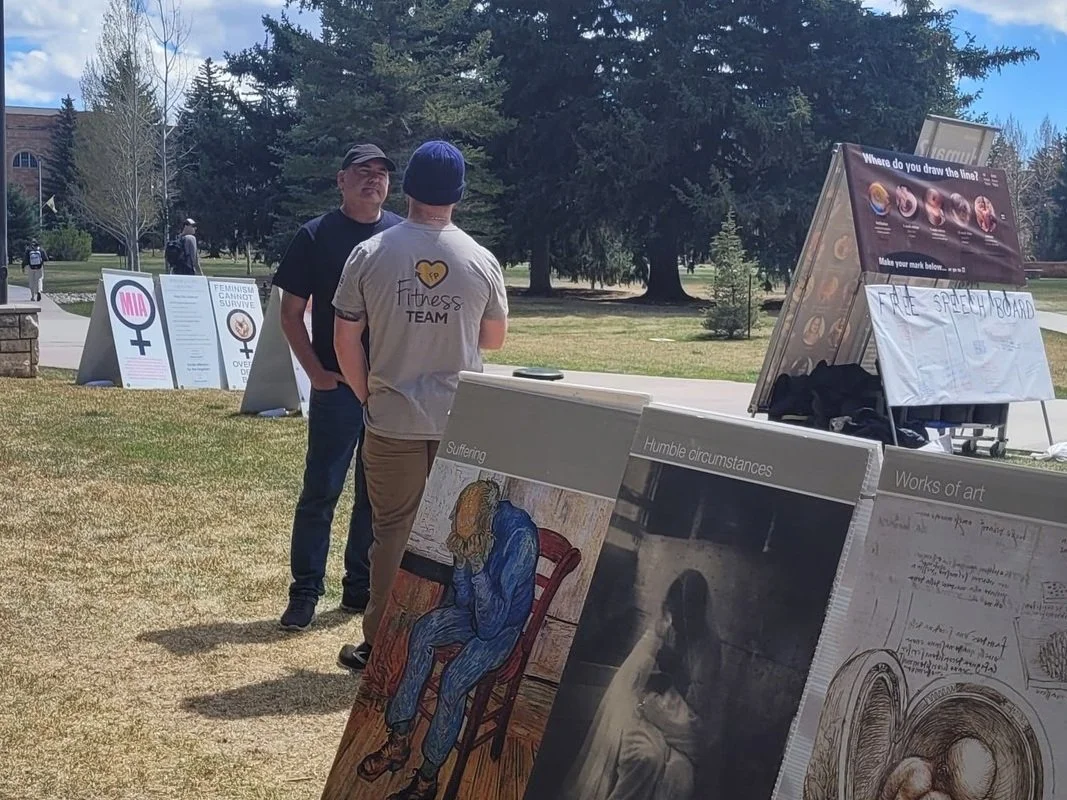I followed up by asking her what she thought about abortion. Right off the bat, I recognized the love and compassion that Liz has for women, for she responded, “Well, I don’t really like abortion, but I understand that it’s necessary for some women if they are raped or if they’re too poor to take care of a child.”
This was the perfect opportunity, early in the conversation, to set Liz at ease and help her know that I cared about her view and about these circumstances. I responded by saying, “I agree that rape is a terrible experience for any woman to have and I can’t imagine going through that. And poverty is something I’ve never had to experience, but my heart really goes out to anyone living in poverty, especially single mothers. Both of those situations are really sad to think about.”
Almost immediately after saying this, there was a change in Liz’s disposition. I saw a transformation in her face and could tell that my response was not at all what she was expecting to hear. In fact, not only did she become more willing to discuss the topic of abortion with me, but she also began to open up about very personal struggles in her own life. She said that both she and her boyfriend have problems with their mental health. They plan on getting married, and they would love to have children, but they feel trapped because they don’t want their kids to have the same mental challenges they have.
I could tell how distressing this was to Liz, and I was able to really empathize with her. “Wow,” I said. “That is such a difficult situation. I want to have children someday, too, so I can understand how hard this must be for you because obviously we want the best for our children and would never want them to experience the same hardships we have experienced. I’m sorry you have to go through this. Is your family supportive of you and your boyfriend?” “Yes, luckily they are very supportive and loving,” she answered. “I’m so glad to hear that,” I replied. “It’s so important to have people in your life that you can lean on to help you through the hard times.”
The way that Liz opened up to me and the way in which I was able to empathize with her created a strong connection between us. In fact, most of our conversation was spent just getting to know one another. We talked about our shared Christian faith, joked and laughed over stories from our past, and talked about our families and backgrounds. We didn’t actually discuss the topic of abortion in depth until a friendship had begun to develop. Because of our connection, when I did ask her about abortion again, she was very open and willing to discuss it with me.
“So, do you think the unborn is biologically human?” I asked. “I’m not sure,” she replied. “That’s okay!” I said. “Would you be open to hearing what I think?”
“Absolutely!” she eagerly responded. I then walked her through evidence that the unborn is biologically human. For example, the unborn exhibits the three characteristics of living things, it has human parents and human DNA, and it is a whole organism that is developing itself. Liz said that those reasons made sense, and she was willing to agree that the unborn is biologically human.
I then tried to help her see why all human beings deserve the right to life by asking her a few questions: “Look around at everyone on campus. We’re all different, right? Different religions, races, ages, and genders. But could you agree that everyone on campus deserves to be treated equally at least in the sense of the basic right to life?” She nodded. “Of course.”
I continued, “So then there must be something the same about us that gives us the right to demand this equal treatment. What do you think is the same about us?” Liz paused and thought for a moment. “That’s a good question. I don’t know. What do you think?” she finally asked.
“Well, I think it’s simply that we are all human beings!” I could see that this answer really resonated with Liz. “Yes, that makes sense,” she quickly replied. I continued: “So if the unborn is also human then shouldn’t he also deserve the right to life?”
The look on Liz’s face told me that she completely understood this argument and was really grappling with it. After a moment, she answered, “I guess abortion is an injustice. But I do understand why some women need to get abortions.” This response impressed me because of Liz’s willingness to admit that she had changed her view of abortion as not being an injustice. I wasn’t at all surprised that she held onto the belief that it is still necessary for some women, despite it being wrong. I know that she was simply trying to process through everything we had discussed. A total change of heart may come later when she has had more time to dwell on this complex topic.
With all that being said, my conversation with Liz is one of my favorites not because of her altered view of abortion but because of what she said in parting after we had talked for about an hour. She looked at me earnestly and said, “Thank you! You have changed my perspective of pro-lifers and the pro-life movement.” Those are the most precious words I have heard in any of my conversations.
One of our main goals as staff at Justice For All, and as pro-life advocates in general, is to have dialogues that convey Christ’s message of love, forgiveness, and understanding. Liz’s parting words confirmed that I had fulfilled that message in our conversation. Whether or not she completely changes her mind on the issue of abortion, I know that I had a great impact on her because she has a new view of pro-life advocates as people of acceptance, love, and openness. This, in and of itself, opens so many doors for more productive conversations in the future. She will now be much more willing to listen to and understand the pro-life position without the interference of a negative association with pro-life people.
So often, pro-choice people don’t want to engage us simply because they think we don’t care about their views. Let us change that stigma by our examples of Christ-like love, unconditional and immeasurable, in every interaction we have with people with whom we disagree. Let us truly live out Jesus’ command to us: “Love one another. As I have loved you, so you must love one another.” (John 13:34)





